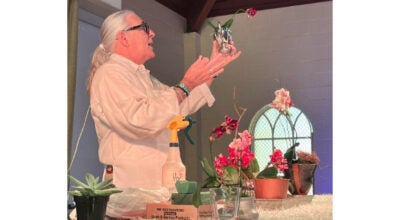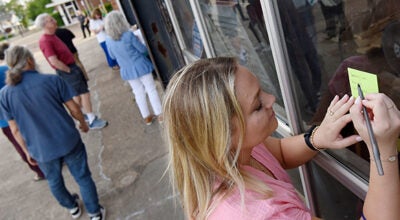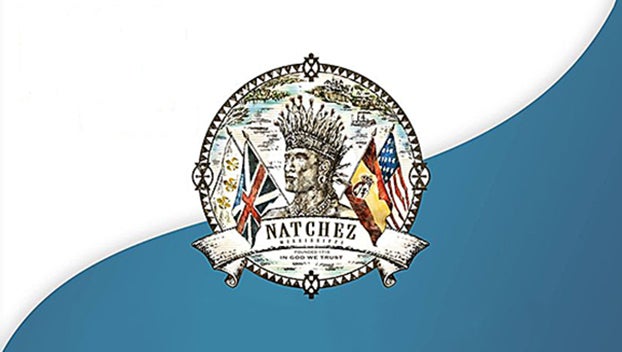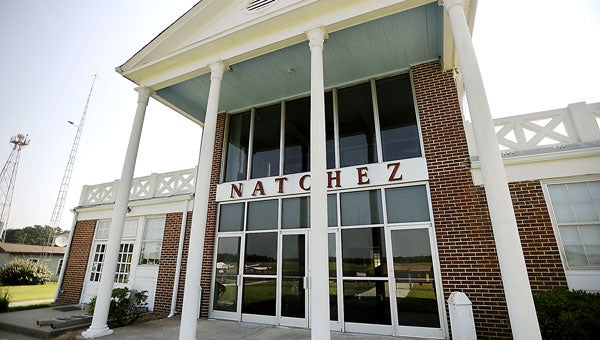Local restaurant is serving more than customers
Published 12:06 am Sunday, December 1, 2013

Ben Hillyer/The Natchez Democrat — D’Anne Thorpe takes an order in Slick Rick’s Foods in front of a sign that informs customers that the staff of the Natchez restaurant does not ask for tips. After three years of customers leaving tips, the staff is donating the money to local charities.
NATCHEZ — One local restaurant has a tip for those in need — literally.
As the giving season begins, the staff at Slick Rick’s Foods will simply continue a year-round policy that’s begun to garner a bit of community attention. Any tips left by customers go straight to charity.
The wait staff will provide you good service free of charge, since they believe good service is, in some sense, a way to bring balance to the universe.
“I enjoy it, giving back is pretty cool,” employee D’Anne Thorpe said. “It’s some good karma.”
But to understand why tip money translates into good karma, you need to look back to when the restaurant opened.
Because it’s a lunch café, waiters would never make enough to actually live on tips, co-owner Mary Ann Simons said, so the business decided from the start to pay employees better than minimum wage and tell customers not to worry about tipping.

A sign posted above the front window lets customers know to which charity tip money is being donated and how much money was raised for another charity last month.
“When we first opened up, when people would come in and they would enjoy the food and get good service, they would want to give a tip, but we would tell them, ‘We don’t take a tip, the tip is if you go out and tell others about us,’” Simons said.
“It got where people would just leave money on the table even when we said not to.”
Over time, those tips started to add up, and the business’ management couldn’t think of a way to fairly divide up the non-allocated tips. They considered buying something useful for the restaurant, Simons said, but that didn’t seem right.
Then one day, when Simons and the company’s chief operating officer, Dee Boyte, were discussing what to do with the tip money, a solution came to them.
“Mary Ann and I were sitting in our office, throwing out ideas about how we didn’t like the tip jar and we would rather not set it out because it is not attractive,” Boyte said. “It was like an epiphany that we should give the tips to charity.”
After a little more discussion, it was decided that the charities would — if possible — be local organizations.
“We wanted to give back to the community that has helped support us, and that just seemed like the best thing to do,” Boyte said.
The charity the tip money will go to is rotated out on a monthly basis. The employees decide which local organization will receive the cash each month, with one employee making the final choice on a rotating basis.
“When people come in here, they are usually spending less than $30 and they spend 15 minutes and leave,” café manager Stacy Parker said.
“The most a person working a lunch shift can make is $20 a shift, and that’s nothing. We couldn’t support anything with those tips, but when you collect enough over time, that can make a difference.”
At the end of the month, management takes the final tip collections and rounds the dollar figure up to make it an even donation.
“If it is $328.62, we throw in a little extra to make it $400 even,” Simons said.
Through the tip-raising donations, the café has been able to give $450 to the Stewpot, $400 to Project Cure and $350 to the Natchez-Adams County Humane Society.
Early on the business posted a no-tipping sign where customers could see it, and the sign remains in place, but since adopting the tips-as-charity policy, the café has also posted a sign saying what charity tips will go to during a given month and how much was raised the previous month.
“We will still get people who try to sneak us money and say, ‘This is for you,’ but we just take it and say, ‘This is for charity,’” Parker said.
The idea to give through good wait service is spreading. Simons said the owner of a restaurant in Jackson ate at Slick Rick’s a while back and has since contacted her to let her know the Jackson business will also be adopting the tip model.
And as word has spread about the policy locally, the no-tip café has been receiving more and more tips, Simons said.
“Now that our patrons know more and more about it, the tip giving has jumped up,” she said. “We have started having people who are giving a $20 bill for a tip.”
Maybe it’s the food, maybe it’s the service, maybe it’s the charitable premise and maybe it’s a combination of all of those things, but Boyte said the response has been overwhelming.
“When the staff told me we made $70 in tips for charity the other day, it blew me away,” she said.
“It makes us feel good because we can help the community.”





